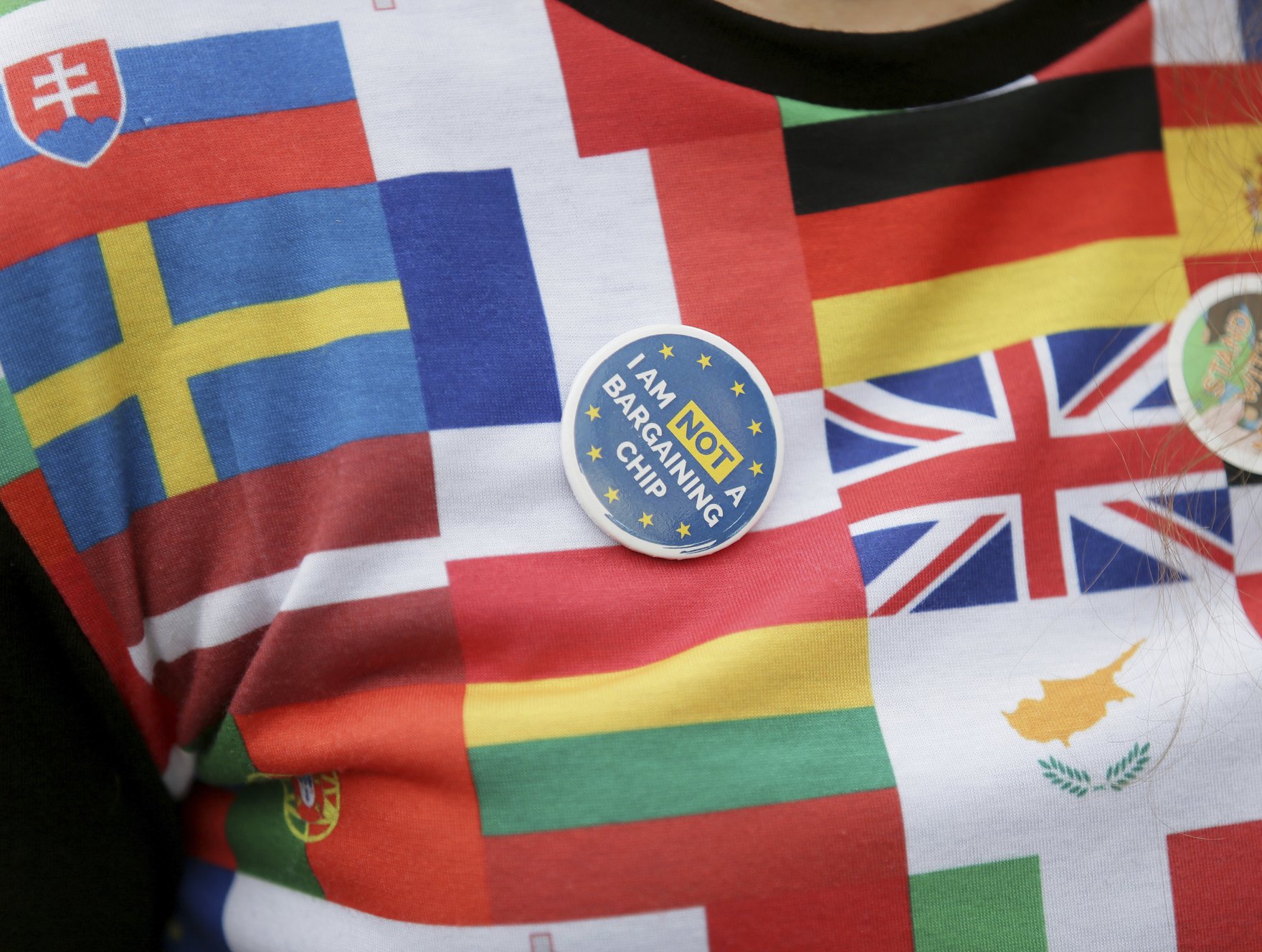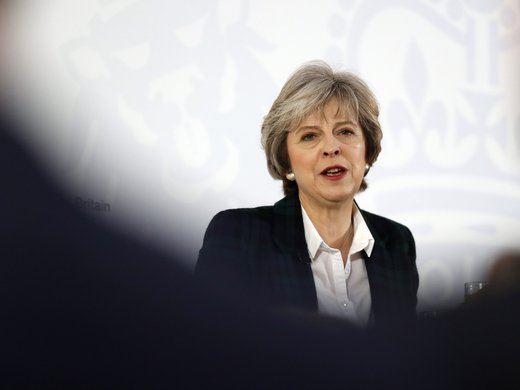The majority vote in the United Kingdom to leave the European Union — which came as a surprise even to some proponents — is probably the biggest event in European history since the collapse of the Soviet Union and the reunification of the two parts of Germany.
Since six of Ireland’s 32 counties are part of the United Kingdom, Brexit will have a major impact. As London prepares to trigger Article 50 of the Treaty on the European Union and begin negotiations in earnest with Brussels, the stakes are high in Dublin and Belfast.
The Good Friday Agreement of 1998 brought an end, almost completely, to the conflict that was raging in Northern Ireland since the late 1960s. A key element of the agreement is that a united Ireland will come about if and when a majority in each part of the island votes for such a move. Up to now it was taken for granted that, whatever the outcome of the referendums, the entire territory would remain in the European Union.
However, now that the United Kingdom is about to branch out on its own, this central feature of the Good Friday pact is placed in doubt. When Germany was reunited, the former German Democratic Republic (GDR) neatly merged into the European Union. The Irish Taoiseach (prime minister) Enda Kenny has been lobbying EU colleagues to ensure that, in the event that the two parts of Ireland are about to unite, the same rule will apply to Northern Ireland as to the GDR.
Indeed, the Sinn Féin party, led by Gerry Adams, has been campaigning for Northern Ireland to be given special legal status within the European Union as things stand at present. This argument is based on the fact that the electorate in “the North” voted against Brexit by a majority of 56 to 44 per cent. There are no indications that the British government will lend any support to this demand, since London regards the UK majority vote for Brexit as the determining factor.
It is likely that concern about Brexit and its implications contributed to the dramatic rise in support for Sinn Féin in the elections to the Northern Ireland Assembly in recent days. Previously known as “Eurocritical” and even “Euroskeptic,” Sinn Féin has taken a strong pro-EU line on this occasion, with very positive results after ballots were counted on the weekend, securing 27.91 percent of the vote to 28.06 percent for the pro-Brexit Democratic Unionist Party, leaving power finely balanced in the Assembly, where the two largest parties are separated by a single seat.
The vote came as attention turns to the boundary between the two parts of the island of Ireland. Currently this is known as a “soft border” — anyone driving from the Republic into Northern Ireland or vice versa will notice the main difference is that the road signs in the south are in kilometres, while those in the north are in miles.
When Brexit takes effect, however, this dividing line will be the only land border between the United Kingdom and the European Union. Unless some mechanism can be found for the United Kingdom to remain in the single EU market, tariffs or customs duties (or both) are likely to be imposed on goods transported across the border.
This likelihood would seem to imply the construction of customs posts, which were a feature of the Irish border in the past. Such a development would have serious security implications: in former times, militant Irish republicans attacked these posts and blew them up, so it is highly likely that similar attacks would take place in the future.
Brexit abruptly reverses a pattern begun in 1973, when Ireland and the United Kingdom joined the European Economic Community (EEC), as it was then known, at the same time. The majority vote in the Irish referendum in 1973 was motivated by two concerns: first, if the country’s main trading partners, the British, were joining the EEC, the country could not remain outside; and, second, the benefits of membership for the farming community were too good to miss.
Given the proximity of Ireland and Britain and the major trading relationship — valued at €1 billion per week — that still exists between the two states, Brexit is going to cause serious disruption. Since both are members of the European Union at present, Britain has a huge incentive to import Irish beef, for example. However, once the British are out on their own, beef imports from other countries such as Australia, New Zealand, Argentina and the United States are going to become very attractive indeed.
Irish exporters to the United Kingdom are already being hit by the fall in the value of sterling in relation to the euro: on Referendum Day, June 23, 2016, the British pound was worth €1.30, but at time of writing the figure is just below €1.16. There is an obvious need for Ireland to find alternative markets, but that is easier said than done. Britain is geographically close, and there is little bureaucracy involved. Indeed, some would argue that, in the long run, Ireland might itself have to consider leaving the European Union.
As well as the soft border between the north and the south in Ireland, there is a Common Travel Area between Ireland and Britain, which means that no visas are required for Irish people entering the United Kingdom or for UK visitors going to Ireland. This arrangement predates EEC/EU membership, but now Brexit has put it in doubt.
Probably the key issue with those who voted for Brexit was immigration. Rightly or wrongly, there was, and is, a feeling among sections of the British electorate that immigrants from Eastern Europe are taking their jobs and crowding-out public services. It seems inevitable that, post-Brexit, the British government will seek to place major restrictions on immigration. This move could include bringing the Common Travel Area to an end, especially if Ireland is regarded as a potential avenue for would-be Eastern European immigrants in the future. Irish people would be gravely concerned about any restrictions, as Britain has traditionally been a place where they could find work when jobs were scarce at home.
On a more positive note from Dublin’s vantage point, the departure of the United Kingdom from the single European market would provide an incentive for major financial companies to relocate from London to Dublin, as an English-speaking city still part of the European Union. If plans for an EU Capital Markets Union are realized, the attachment of investment banks to the City of London will be further tested.
However, other European capitals might also prove attractive: English is widely spoken in Amsterdam, for example. Meanwhile, a reduction in the US level of corporate tax is looming, making for increased competition with the Republic of Ireland, which offers these companies a very attractive rate of 12.5 percent.
The imminence of Brexit has aroused concern in Scotland and there are suggestions that the Scots might want to hold another referendum on independence so that they can remain in the European Union. A “yes” vote in that instance would involve a major diminution of the United Kingdom, with significant consequences for both parts of Ireland. On the one hand, the pro-British section of the community in the north would feel very isolated if their Scottish neighbours branched out on their own. The movement for a united Ireland, on the other hand, would derive considerable encouragement and impetus from a Scottish breakaway.
The current political climate in Europe, with hard-right elements coming to the fore in France and the Netherlands and a resurgence of “Little Englander” sentiment, is making it very difficult to anticipate how the negotiations between Prime Minister Theresa May’s government and EU representatives will work out. In a less febrile situation, there would have been better grounds for believing that a fairly relaxed arrangement could be arrived at, involving modest limits on immigration to Britain from the European Union and restricted, but still very considerable, British access to the European market.
That is the earnest hope and wish of middle-ground elements on all sides, particularly in Ireland, which is caught in the middle of this major realignment of the relationship between its closest neighbour, on the one hand, and key European Union partners, on the other.
Deaglán de Bréadún is an award-winning writer based in Dublin. He was Northern Editor and Foreign Affairs Correspondent for The Irish Times and is the author of Power Play: The Rise of Modern Sinn Fein



